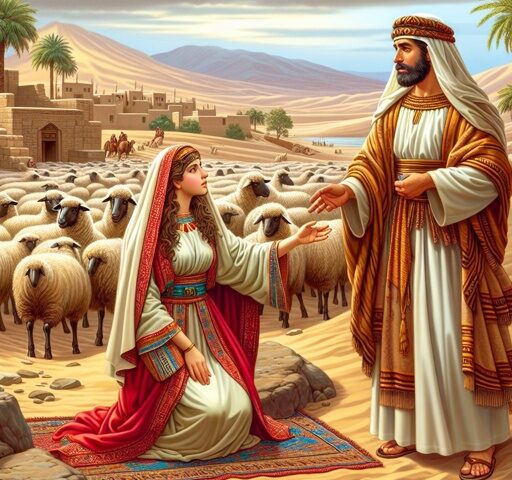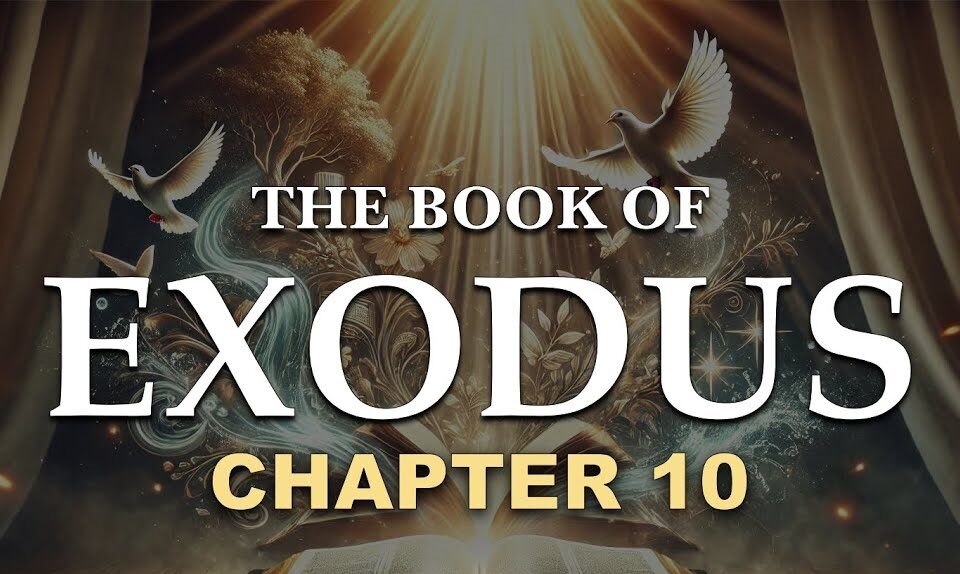Divine Retreat Centre UK – Official Website

12 Unlikely Heroines from the Old Testament – Chapter 4 – DEBORAH and JAEL
October 12, 2024
Dewfall – 6
November 12, 2024The Woman Who Fought for Her Rights
As a woman, I’ve often encountered comments that undermine my freedom to live life on my terms. My neighbors would admonish my parents for allowing me to pursue higher studies, fearing it would jeopardize a good marriage alliance. My parents have urged me to watch my weight, worrying I might not be attractive to a future husband. They’ve given gifts to my brothers, assuming a girl could make do with hand-me-downs. Our maid laments how her husband takes all her salary for his expenses and beats her when she protests. As women, we have been ogled at, eve-teased, and subjected to sly comments. Some babies are aborted simply because they are girls. Society, and sometimes even our own families, try to control our lives, and few women fight back. Those who do are often condemned by society and labeled as outcasts or characterless. Women have had to fight for their right to vote, education, marriage of choice, and to live their lives freely.
Chapter 38 of the Book of Genesis describes Judah’s family. Judah married a Canaanite woman, the daughter of Shua, and had three children with her: Er, Onan, and Shelah. When Er reached a marriageable age, Judah arranged his marriage to Tamar. However, scripture states that Er was wicked in God’s sight, and the Lord put him to death. Tamar became a widow without having borne a child for Er. At that time, Israel practiced levirate marriage as commanded in Deuteronomy 25:5-6:
“If brothers live together, and one of them dies and has no son, the wife of the dead man shall not marry outside the family to a stranger. Instead, her brother-in-law shall go into her, take her as his wife, and perform the duty of a husband’s brother to her. And the first son whom she bears shall succeed to the name of his dead brother, that his name may not be blotted out of Israel.”
Under levirate marriage, Tamar was then married to Judah’s second son, Onan, so she could bear a child to continue Er’s lineage.
Deuteronomy 21:17 suggests that “he shall acknowledge the first-born, the son of the unloved, by giving him a double portion of all that he has, for he is the first issue of his strength; the right of the firstborn is his.” This meant that the firstborn was entitled to double the share. Since Judah had three sons, Er would have received two portions of his inheritance, while Onan and Shelah would each receive one. Knowing that the child would not be considered his and would receive two portions of Judah’s wealth, Onan spilled his semen on the ground to prevent Tamar from conceiving. He was content to enjoy the sexual act without fulfilling his duty to get Tamar pregnant. Because of this wicked act and intention, God was angry with Onan and put him to death. Instead of recognizing the evil deeds of his son, Judah blamed Tamar for their deaths and did not give her to his younger son, Shelah, fearing he might also die. Judah then sent Tamar back to her parental home, using the excuse that Shelah was still too young.
For a long time, Tamar remained silent and obedient as a daughter and daughter-in-law, doing as the elders instructed. Scripture tells us that much time passed, and Judah’s wife died. Although Shelah had grown older, he was not given to Tamar in marriage. Judah and his son had forgotten about Tamar and their duty towards her.
Sometime after the death of Judah’s wife, Judah traveled to Timnah to visit the men shearing his sheep. Tamar, knowing that her father-in-law was visiting her hometown, waited for him, expecting him to fulfill his promise. When he did not, Tamar took matters into her own hands. She removed her widow’s clothes, put on a veil, and sat by the roadside where Judah would see her.
Judah, mistaking her for a prostitute, approached her for sex. Tamar, well-prepared, asked for a pledge for her services. Judah offered his seal, cord, and staff as a pledge. After receiving these items, Tamar had intercourse with him and then disappeared. Although Judah later sent a goat through a friend to retrieve his items, Tamar was nowhere to be found.
Three months later, when Judah was informed of his daughter-in-law’s pregnancy, he was furious, believing Tamar had engaged in prostitution, and he ordered her to be burned to death, as was customary at the time (cf. Deuteronomy 22:21). Tamar acted quickly, sending him the pledge and staff that identified him. Realizing the truth, Judah publicly declared Tamar’s innocence, admitting that “she is more righteous than I” (Genesis 38:26). Judah had unwittingly fulfilled the levirate himself and never slept with Tamar again. Tamar then gave birth to twin sons, Perez and Zerah.
The story of Tamar teaches us that God cares about women just as much as He does for men. Tamar faced grave injustices not of her own making. By withholding Shelah, Tamar was denied a future. God allowed Tamar to triumph over her circumstances. Tamar was assertive of her rights and remained loyal to Judah’s family. She also finds her place in the ancestry of Jesus.
Lessons from Tamar
Tamar could have forced her way to the Council, demanding that she marry Shelah, thereby humiliating Judah and his family. Instead, Tamar acted with honor and did not give up her rights even when those around her forgot their duty. She could have resigned herself to her injustice and accepted it, thereby causing dishonor to herself and Judah’s family. But Tamar acted with grace, willing to take risks to restore what was wrongfully taken from her. We need to be righteous like Tamar, willing to stand up for what is right while also forgiving those who wrong us.
Proofread and edited by Fr Austin Fernandes SDB




